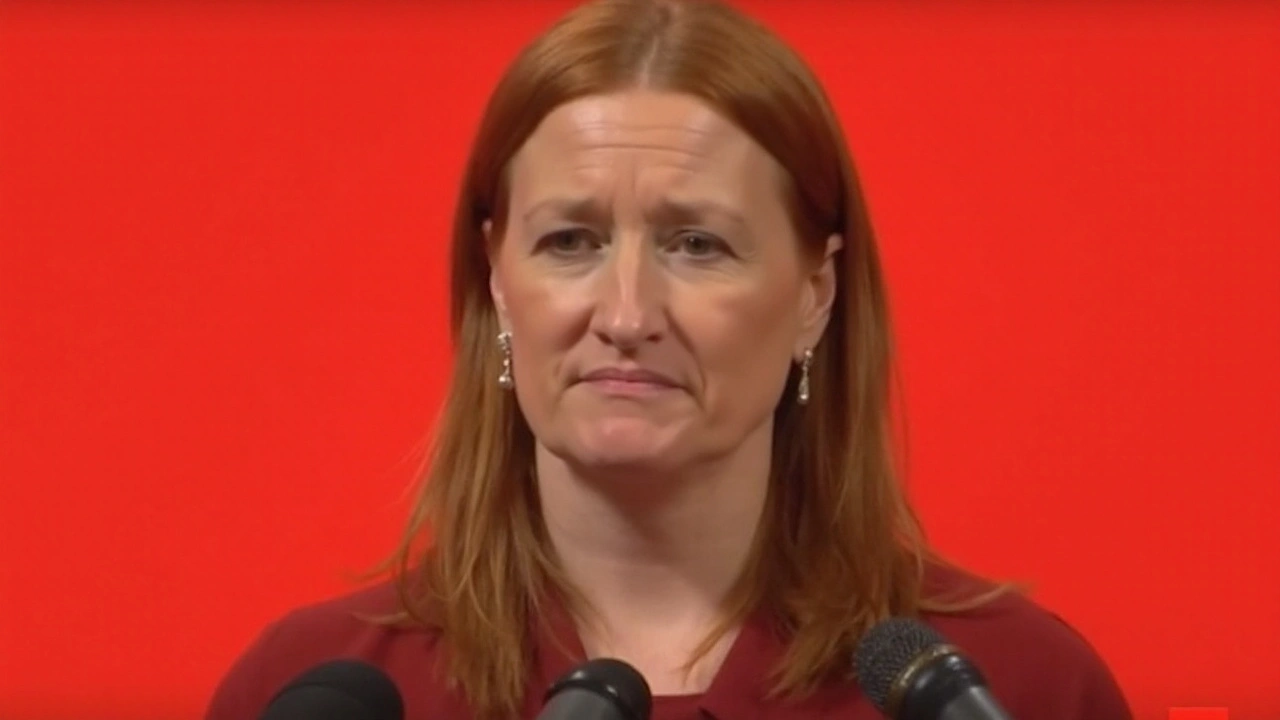A £40,000 tax shortfall just cost a top job in Downing Street
Angela Rayner has resigned as the United Kingdom’s deputy prime minister after an independent probe found she failed to meet the standards expected of ministers over a property tax error tied to an apartment in Hove. The case turns on stamp duty, the tax paid when buying property in England, and a shortfall estimated at around £40,000. She accepted responsibility and stepped aside on Friday, a rapid fall for one of Labour’s most visible and combative figures.
The timing stings. Rayner had the housing brief in government and built her profile on fairness and accountability—often taking aim at politicians who play fast and loose with taxes. The optics of a senior minister underpaying stamp duty, even if by mistake, made her position tough to defend.
In a letter to Prime Minister Keir Starmer, she acknowledged the error, saying she acted in good faith but should have taken clearer advice. She referred herself to Laurie Magnus, the independent adviser on ministerial standards, earlier in the week. By Friday, Magnus had delivered his report. Starmer said he was sad to see her go but backed the decision as the right one.
Rayner is not exiting politics. She remains on the Labour benches and, by most accounts, retains a loyal base across the party’s left and within the trade union movement. But leaving the cabinet sidelines her at a moment when Labour is trying to show tight discipline in its first months in power.

What the inquiry found—and why it matters for Labour and housing policy
Stamp Duty Land Tax (SDLT) is paid when you buy property in England and Northern Ireland. Rates rise with price, and there’s a 3% surcharge for most second homes and some buy-to-let purchases. The rules are technical: the rate depends on whether it’s your main residence, whether you already own other property, and whether you’re replacing your main home. Misclassify the transaction and you can underpay, sometimes by a lot.
That appears to be the core of this case. The independent standards adviser concluded that Rayner didn’t meet the bar set by the ministerial code—rules that stress integrity, openness, and compliance with the law. The code gives prime ministers room to decide on sanctions, but public confidence usually falls quickly when tax issues are involved. Rayner’s quick referral to the adviser was meant to show transparency; the report’s findings made resignation hard to avoid.
The practical fallout now moves to the tax side. Underpaid stamp duty typically needs to be repaid, with interest and, depending on the circumstances, a penalty. HM Revenue & Customs can and does reopen transactions if conditions change or if a relief was claimed in error. Rayner has said she takes full responsibility, which points to a settlement process if money is due. The sums involved suggest this won’t be a trivial bill.
Politically, the damage is sharper because of Rayner’s role. She was front and center on the housing brief—pushing planning changes, build targets, and a reset with local authorities. Housing is the first big test for the new Labour government and a core promise to younger voters. Losing the minister in charge right as policy is being drafted creates delay risks and opens space for critics to claim the government is distracted.
Inside Labour, Rayner’s departure also shifts the balance at the top table. She has long been a bridge between Starmer’s leadership and parts of the movement that didn’t always trust his centrist pitch. Her presence gave the project cover with unions and the party’s left. Without her in the cabinet, Starmer keeps his authority but loses a powerful voice that could rally the grassroots behind tough choices on housing and planning reform.
Expect a quick reshuffle to steady the file. The next housing lead will need to keep reforms moving, manage local backlash to new building, and hold the line on rental standards. Markets and developers will be watching for signs that policy timetables are intact. Councils, too, will want clarity on funding and targets before the winter building season.
Opposition parties see an open goal. Conservatives will argue Labour’s message on fairness is undercut by a tax row at the very top. They will push for more details on what advice Rayner took, what exactly went wrong, and how the government will prevent similar lapses. Expect hearings and urgent questions when Parliament returns, probing both the tax specifics and how the ministerial standards system handled the case.
There’s a broader trust issue in the background. Every government promises to crack down on tax avoidance and to run a tighter ship than the last. Voters have a low tolerance for double standards. Even when an error is honest, the line between a technical mistake and a political breach is thin. That’s why ministerial standards exist, and why leaders move fast when the watchdog says the code was not met.
So what happens to Rayner now? Backbench life can remake or end a career. She has a reputation as a forceful campaigner and a strong base in parts of the country Labour needs to keep. If she settles the tax matter cleanly and keeps her relationships inside the party, she could rebuild. UK politics is full of comebacks, especially for figures who speak well outside Westminster.
For Starmer, the task is simpler but urgent: plug the gap on housing and keep the government’s early momentum. The first year defines a new administration. Delays on delivery feed the story that nothing changes. A stable, credible replacement at housing—and a tight grip on standards—will tell voters the government can take a hit and still do the job.
Behind the scenes, officials will now focus on process. That means double-checking ministerial declarations, tightening guidance on property transactions, and reminding ministers to get tax advice before signing. Tax law is detailed and unforgiving; the system assumes you get it right at the time. The political system, though, judges the response—speed, transparency, and consequences—just as much as the mistake.
The facts in this case are straightforward: a property purchase, a stamp duty shortfall, a breach of the ministerial code, and a resignation. The ripple effects are the real story. Housing policy needs a steady hand. Labour’s message on fairness needs a clear voice. And Angela Rayner’s next move—quiet rebuilding or active campaigning from the backbenches—will shape not just her future, but how the government manages pressure when its own standards are tested.
